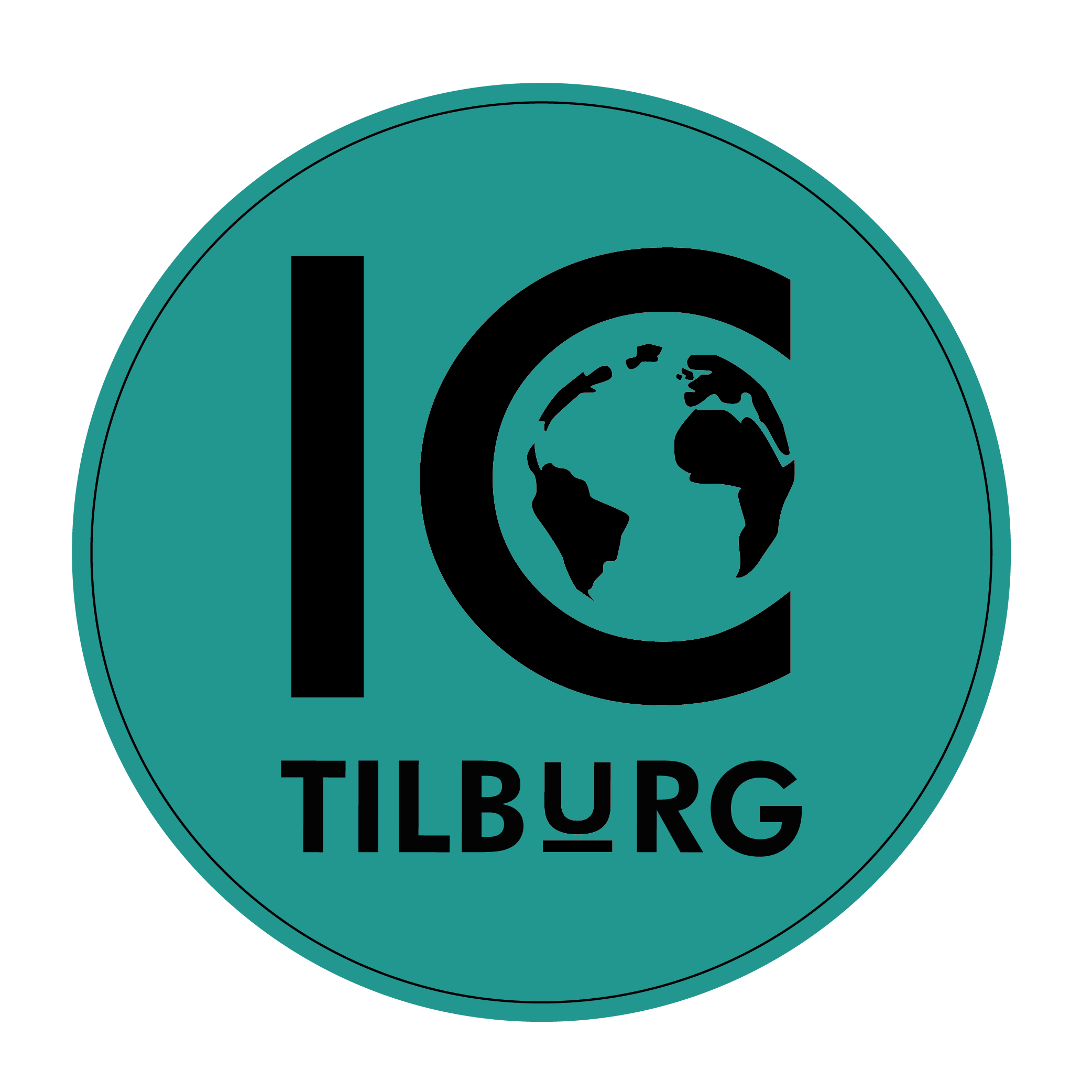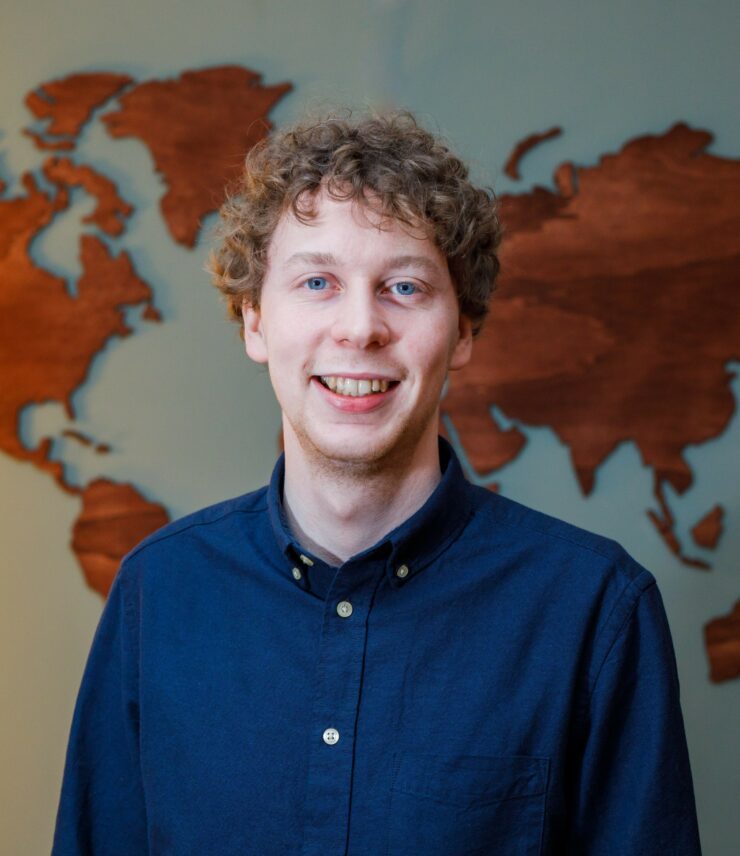Workshop / activiteit
Thom Engelhart
Scroll down for the English version!
Dutch
International Center heb ik opgericht (samen met mede-antropoloog Zoë Franz) om een plek te creëren waar iedereen van buitenaf welkom is – dus expats, internationale studenten, arbeidsmigranten, vluchtelingen (en ieder ander). Wij zijn dit in Tilburg begonnen omdat er een explosieve toename zichtbaar is van buitenlandse inwoners in Tilburg, maar er nog geen plek was waar deze mensen terecht konden. In Tilburg waren er onvoldoende faciliteiten om deze doelgroep te ondersteunen met hun vraagstukken. Wij hebben onze sociale onderneming opgericht met een not-for-profit ideologie – hulp en je thuis kunnen voelen moet in onze ogen gratis zijn.
Wij kwamen steeds vaker in aanraking met internationals die ‘verdwaald’ waren in de Nederlandse samenleving – het was moeilijk voor ze om antwoorden te vinden op hun vraagstukken, om andere mensen te leren kennen, om vaardigheden te ontwikkelen waarmee ze lokaal konden participeren, en in algemene zin hun weg te vinden in hun nieuwe thuis. Als antropologen hebben wij ons bedrijf opgebouwd samen met de internationale community van Tilburg.
Allereerst openden we de deuren om internationals te ondersteunen met directe vragen en informatie, vanuit daar zijn wij met hen in gesprek gegaan om projecten te ontwikkelen die hun behoeftes vervullen. Dit is uitgegroeid tot een hub die internationals verbindt aan de juiste partijen binnen de stad, waarbij wij samenwerken met lokale culturele instituten, ondernemers en de universiteit. Wij hebben een cultureel café waar vluchtelingen in dienst zijn en wat tegelijkertijd fungeert als oordeelvrije ontmoetingsplek. Ook organiseren we een breed scala aan sociale en culturele activiteiten, hebben we een Nederlandse taalschool met meer dan 100 cursisten per jaar, bieden we jaarlijks bijbanen aan 200 studenten en faciliteren we helpdesks waarbij internationals gratis hulp krijgen (bijvoorbeeld bij het vertalen van brieven, aanvragen van verzekeringen, etc.).
Wat ik zou willen meegeven aan studenten, is om altijd je eigen pad te bewandelen en jezelf het geduld te geven dit pad te ontdekken (ik wist immers in mijn 3e en 4e jaar niet waar mijn passie lag en wat ik zou gaan doen). Vers uit de collegebanken, lieten wij onze antropologische kennis los op het vraagstuk internationalisering in Tilburg. Wij handelden uit een ideologie die op verschillende manieren tot uiting kon komen (werken voor overheden/gemeentes/non profits etc.). Wij hebben er toen voor gekozen om die ideologie te verwerken in een sociale onderneming. Voor mij is het belangrijk dat je als antropoloog een manier vindt om iets toe te voegen aan de samenleving. Daarin kan antropologie en sociaal ondernemerschap een logische combinatie zijn; de meeste antropologen hebben immers een sociaal hart en willen iets toevoegen aan de maatschappij. Stel jezelf de vragen: Welke sociale doelen wil je bereiken? Hoe wil je dat vormgeven? Mocht je voor het ondernemerschap kiezen, besef dan dat de praktijk jouw leerschool is. Mijn advies: probeer risicoloos te ondernemen; sociaal ondernemen is natuurlijk geen vetpot en het is niet de bedoeling dat je zelf financieel knel komt te zitten; ik heb er daarom altijd naast gewerkt. Niet alles is rozengeur en maneschijn… Op momenten is het werken tot diep in de nacht. Enerzijds omdat je alle verantwoordelijkheid zelf draagt, anderzijds omdat je passie 24/7 aan staat. Maar dit alles kan het waard zijn, indien je gelooft dat je daarin een stukje van de wereld kan “verbeteren”.
English
International Center I founded (together with fellow anthropologist Zoë Franz) to create a place where everyone from outside is welcome – so expats, international students, migrant workers, refugees (and everyone else). We started this in Tilburg because there is an explosive increase of foreign residents in Tilburg, but there was no place where these people could go. In Tilburg there were not enough facilities to support this target group with their problems. We founded our social enterprise with a not-for-profit ideology – help and feeling at home should be free in our eyes.
We increasingly came into contact with internationals who were ‘lost’ in Dutch society – it was difficult for them to find answers to their issues, to get to know other people, to develop skills that would allow them to participate locally, and in a general sense to find their way in their new home. As anthropologists, we built our business together with Tilburg’s international community.
First, we opened the doors to support internationals with direct questions and information, from there we engaged with them to develop projects that met their needs. This has grown into a hub that connects internationals to the right parties within the city, where we collaborate with local cultural institutions, entrepreneurs and the university. We have a cultural café that employs refugees and at the same time acts as a judgment-free meeting place. We also organize a wide range of social and cultural activities, have a Dutch language school with more than 100 students per year, offer side jobs to 200 students annually, and facilitate helpdesks where internationals can get free help (e.g. translating letters, applying for insurance, etc.).
What I would like to give to students, is to always walk your own path and give yourself the patience to discover this path (after all, in my 3rd and 4th year, I didn’t know where my passion was and what I was going to do). Fresh out of college, we unleashed our anthropological knowledge on the issue of internationalization in Tilburg. We acted out of an ideology that could be expressed in different ways (working for governments/municipalities/non-profits etc.). We then chose to incorporate that ideology into a social enterprise. For me it is important that as an anthropologist you find a way to add something to society. In this, anthropology and social entrepreneurship can be a logical combination; after all, most anthropologists have a social heart and want to add something to society. Ask yourself the questions: What social goals do you want to achieve? How do you want to shape that? Should you choose entrepreneurship, realize that practice is your learning experience. My advice: try to do business without taking any risks; social entrepreneurship is not a money maker of course and it is not the intention that you get stuck financially. Not everything is rosy… At times it is a late night job. On the one hand because you bear all the responsibility yourself, on the other because your passion is on 24/7. But all this can be worth it, if you believe that in it you can “improve” a piece of the world.



